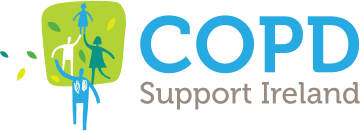 Although COPD cannot be cured, its symptoms can be treated and managed resulting in the quality of your life being improved. Knowledge of your condition is a powerful tool in helping you control and manage your symptoms:
Although COPD cannot be cured, its symptoms can be treated and managed resulting in the quality of your life being improved. Knowledge of your condition is a powerful tool in helping you control and manage your symptoms:
- Know what triggers flare ups (exacerbations) of your COPD
- Know how to recognise flare ups (exacerbations) of your COPD.
- Know your medicines.
- Know how to control your sensations of breathlessness.
To avoid common triggers
- Use unscented cleaning products.
- Avoid wearing perfume or using aerosol sprays.
- Turn on the kitchen fan when cooking.
- Avoid smoke either from surrounding smokers or fireplaces.
- Stay indoors on days which have high air pollen or pollution count.
- When you go outside in cold weather, breathe through a scarf that covers your nose and mouth.
- Avoid people who have a cold or flu.
- Get your annual flu vaccination.
Recognise exacerbations
Take quick action and contact your G.P. if you notice any of the following:
- Increased shortness of breath and /or wheezing.
- Chest tightness or any lung pain.
- Increased cough either with or without mucus.
- A change in the colour, amount, taste or “stickiness” of the mucus.
- Loss of appetite.
- Fatigue or lack of energy.
Know your medicines
You should know what medicines you are taking and why, how they work and how and when to take them. Medications for COPD fall into several groups.
- Bronchodilators/ Relievers – open up your lungs to relieve shortness of breath and wheezing.
- Steroid/Preventers – work over the long term, they reduce swelling and calm inflammation in your airways.
- Antibiotics – treat chest infections by killing bacteria.
- Mucolytics – help make mucus more liquid, making it easer to cough up.
- Vaccinations – help prevent you getting flus and severe types of pneumonia.
